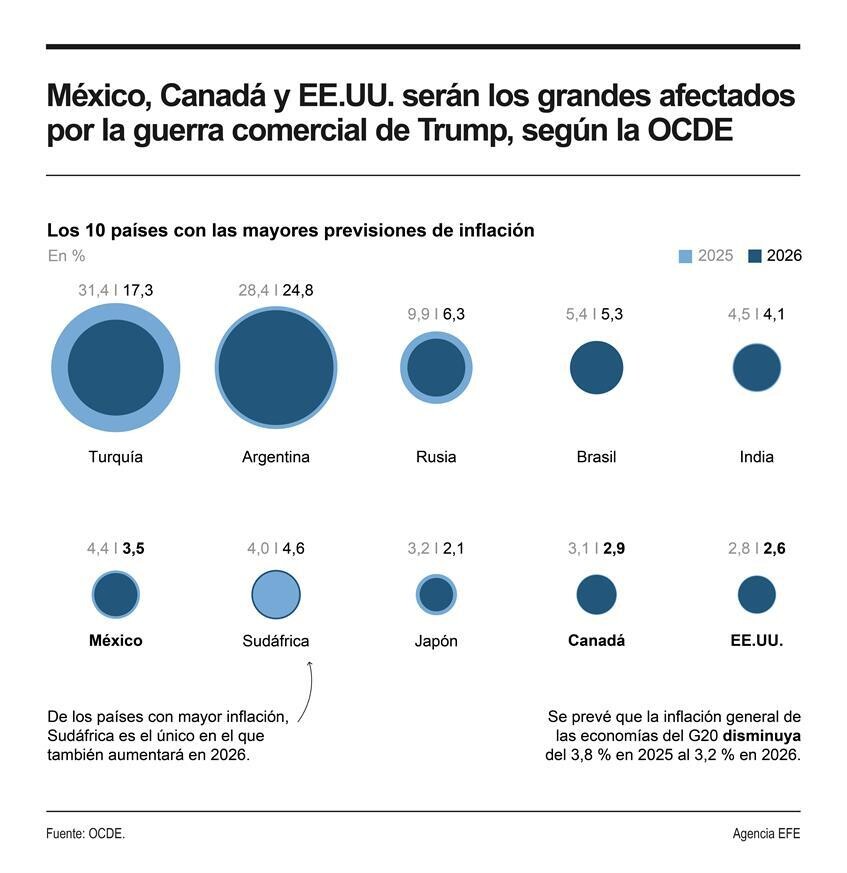
The Organization for Economic Cooperation and Development (OECD) has downgraded its economic growth forecasts due to the impact of the trade war driven by Donald Trump. In its interim Outlook report, the OECD calls for reducing trade and tariff tensions, highlighting that Canada and Mexico will be the most affected countries along with the United States.
In the case of Mexico, a recession is anticipated starting in 2025 with a GDP contraction of 1.3%, which represents 2.5 percentage points less than previously forecasted by the OECD. In 2026, it is estimated that economic activity in Mexico will decrease by 0.6%, becoming the only country in the G20 with negative growth. Canada, for its part, will also experience modest growth of 0.7% in 2025 and 2026.
In contrast, the United States is expected to have a slight improvement with a growth of 1.7% in 2026. In Europe, a lower direct impact from tariffs is expected, but uncertainty will weigh on economic activity, leading to a reduction in growth prospects for the eurozone for this year and the next.
Despite the downward corrections in expectations for Germany, Italy, and France, Spain will stand out from this trend with a GDP growth that will double that of these three countries in 2025 and 2026. As for emerging economies, a slowdown in their growth is expected.
The OECD highlights Trump's unpredictability, noting the high level of current geopolitical and political uncertainty, which poses significant risks to economic projections. A possible scenario of further increases in bilateral tariffs has been simulated, resulting in a decrease in global production and differentiated impacts on various countries, such as Mexico, the United States, and China.
The United States and its trade partners in the T-MEC agreement will be affected by an increase in tariffs on imports. The U.S. GDP will experience a notable slowdown, while the OECD insists on the benefits of de-escalating trade tensions and returning to the T-MEC rules, especially for Mexico.














